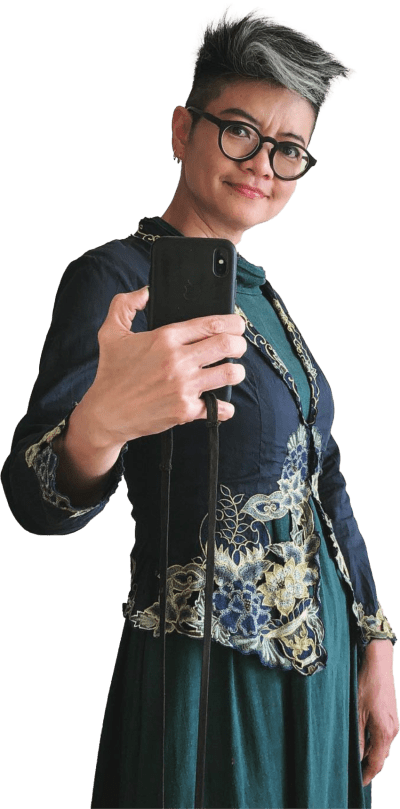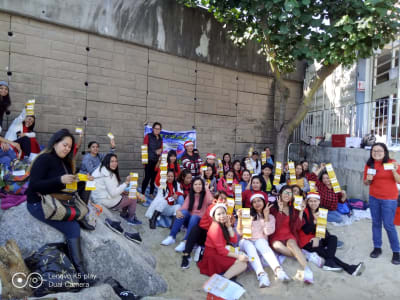By Racel
WHILE I WAS waiting for my friend in Causeway Bay, I noticed a row of telephone booths outside. They were already old, rusty and vandalised. Many people were passing by and no one even gave them a single glance.
There I met a kababayan, who sat beside me and greeted me with a smile. She was a petite lady and had a little bit of grey on her curly hair – she looked like she was in her 50s. I called her Nanay as we began to talk.
Nowadays, people already use smart phones, so out of curiosity I asked her, “Nay, do you think those telephones are still working?” She gently answered me, “‘di ko lang sigurado Ineng, matagal na yan diyan eh.”
Then she started explaining to me how important these payphones used to be to Overseas Filipino Workers (OFWs) back before cellphones were invented. She said, “alam mo ba noon Ineng pinipilahan namin yan. Kasi yan lang ang tanging komunikasyon namin noon para makausap ang mga pamilya namin sa Pinas,” “Dapat madami kang coins na dala kapag pumila ka diyan, para kapag na cut-off na yung call, shoot agad yung coins tapos dial ulit.” At that moment, some words popped into my mind: “I’m at a payphone trying to call home, all of my change I spent on you,” reminded me of some song lyrics with this exact scenario.
"Alam mo ba noon ineng pinipilahan namin yan. Kasi yan lang ang tanging komunikasyon namin noon para maka usap ang mga pamilya namin sa Pinas"
Then she continued, “lahat ng mga pumapasok diyan sa telephone booth, lalabas na umiiyak, yung iba nagpipigil lang ng luha habang kausap ang pamilya nila.” While she was saying those words, “oh my feelings”, I suddenly remembered my mother, ganun din kaya siya noon kapag tumatawag sa amin? Did she also cry inside the telephone booth? She was also an OFW before, back in the 90’s where Alcatel phones were released, at iilan palang ang nakaka-afford bumili noon. So the only way to communicate with her was through telephone calls or letters na aabutin pa ng isang buwan bago makarating sayo.
I asked her again, “ilang taon ka na po dito Nanay?” she said, “ay naku Ineng, 24 years na ako dito. Teacher ako dati sa atin. Four years old yung panganay ko tapos eleven months old lang yung bunso ko nung iniwan ko sila para mag-abroad. Sa awa ng Diyos napatapos ko sila ng pag-aaral, at ngayon may mga sarili na din silang pamilya.” Then I said, “Wow! 24 years po?!” Maybe she saw my puzzled look, as I still wanted to ask her a lot of questions, so she continued talking to me.
(Killing time outside because we are both waiting for someone)
She added, “ang swerte niyo nga ngayon kasi may cellphone na. Kahit anong oras pwede niyong ka-video call ang mga pamilya nyo. Makikita mo sila ng buo. Noong panahon namin, nako pahirapan. Kapag ako na ang nakahawak sa telepono, iniiyak ko nalang yung pagkamiss ko sa pamilya ko.” Dagdag pa niya, “ang mahirap pa, yung mabalitaan mong may sakit ang mga anak mo. Tapos ibubulong nila sayo sa telepono, ‘umuwi ka na Mama’, ay sinasabi ko sayo, ang hirap Ineng. Yung mga halik at yakap ko sa kanila hinahawak ko nalang ng mahigpit sa telepono. Tapos sandali lang yung pag-uusap namin kasi madami pang nakapila sa likod ko. Mga excited din maka-usap ang pamilya nila.” Napahawak sa kamay ko si Nanay habang nagkukwento. “Ngayon tignan mo, halos wala nang gumagamit niyan. Baka nga sira na yung iba diyan dahil sobrang luma at kinakalawang na.”
My conversation with Nanay was suddenly cut-off when my friend arrived, so we said our goodbyes.
Batangueña pala etong si Nanay, we were just strangers a while ago, but after sharing that heartfelt talk, it made me appreciate the importance of these payphones to the OFWs before.
I can’t imagine how they survived the homesickness. No video calls, just the voice of their loved ones. Nakaka-amaze lang. Makes me think how many litres of tears have been shed inside those payphone booths.








a7627e2f507e336b59c20ad92813c0f7)







